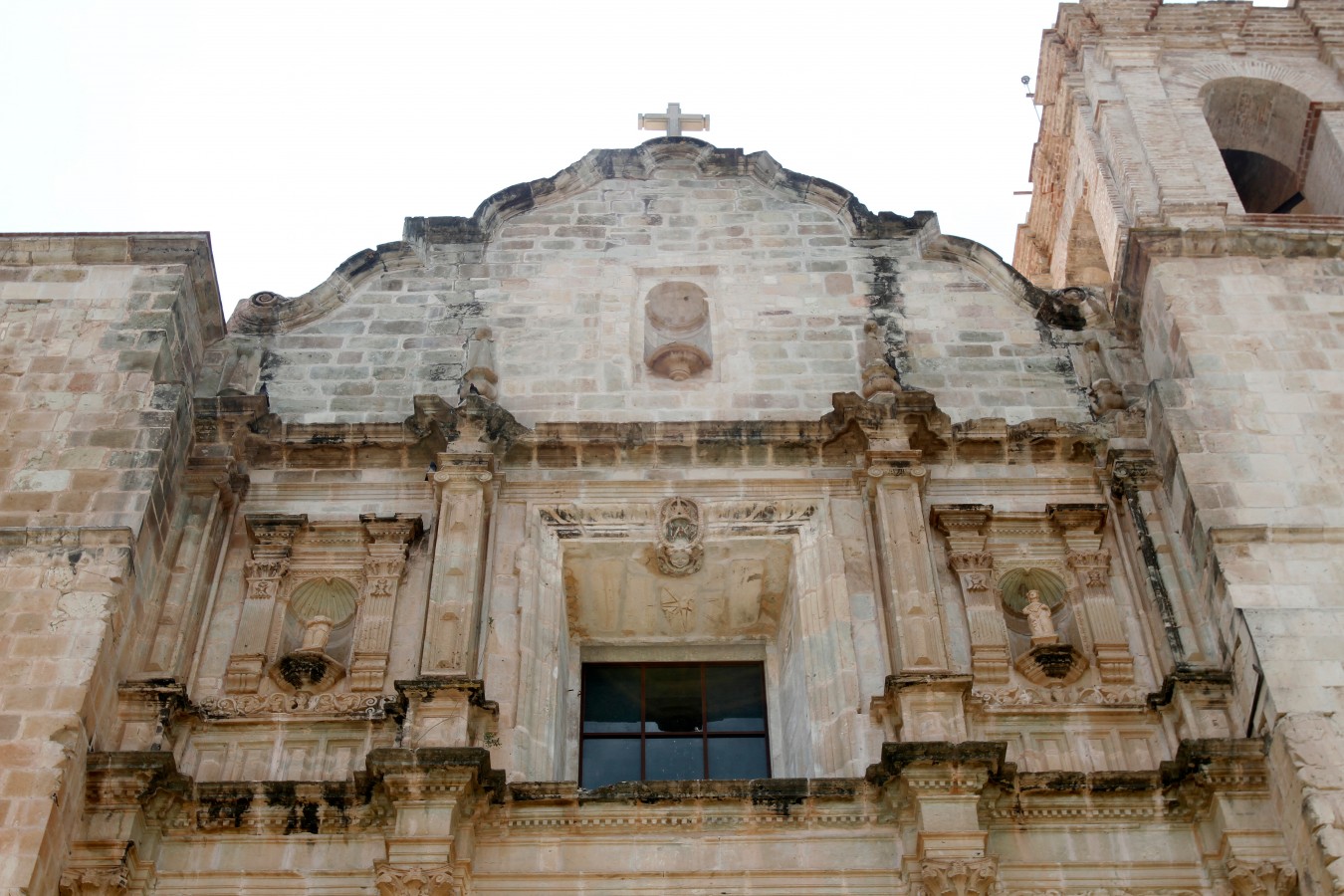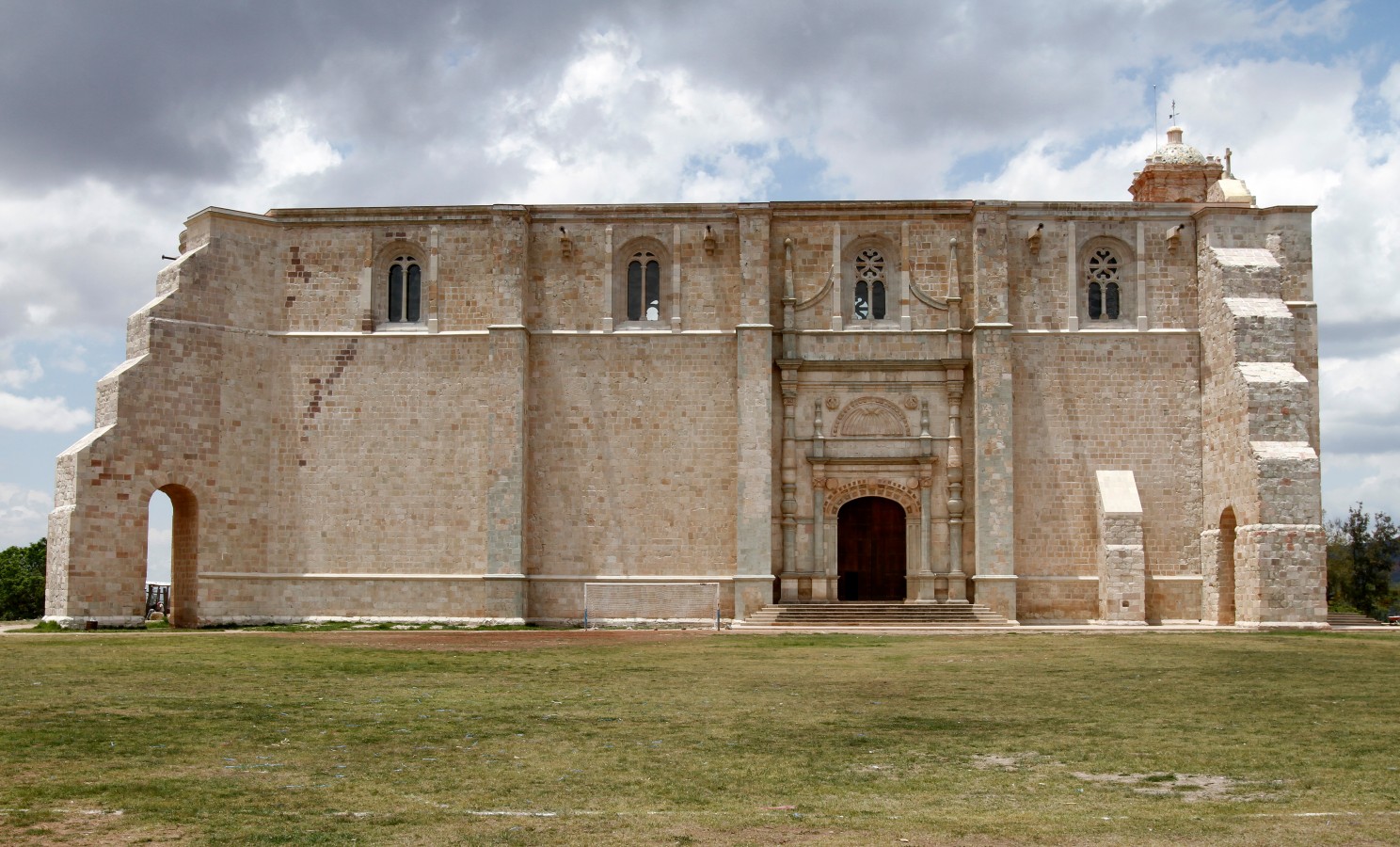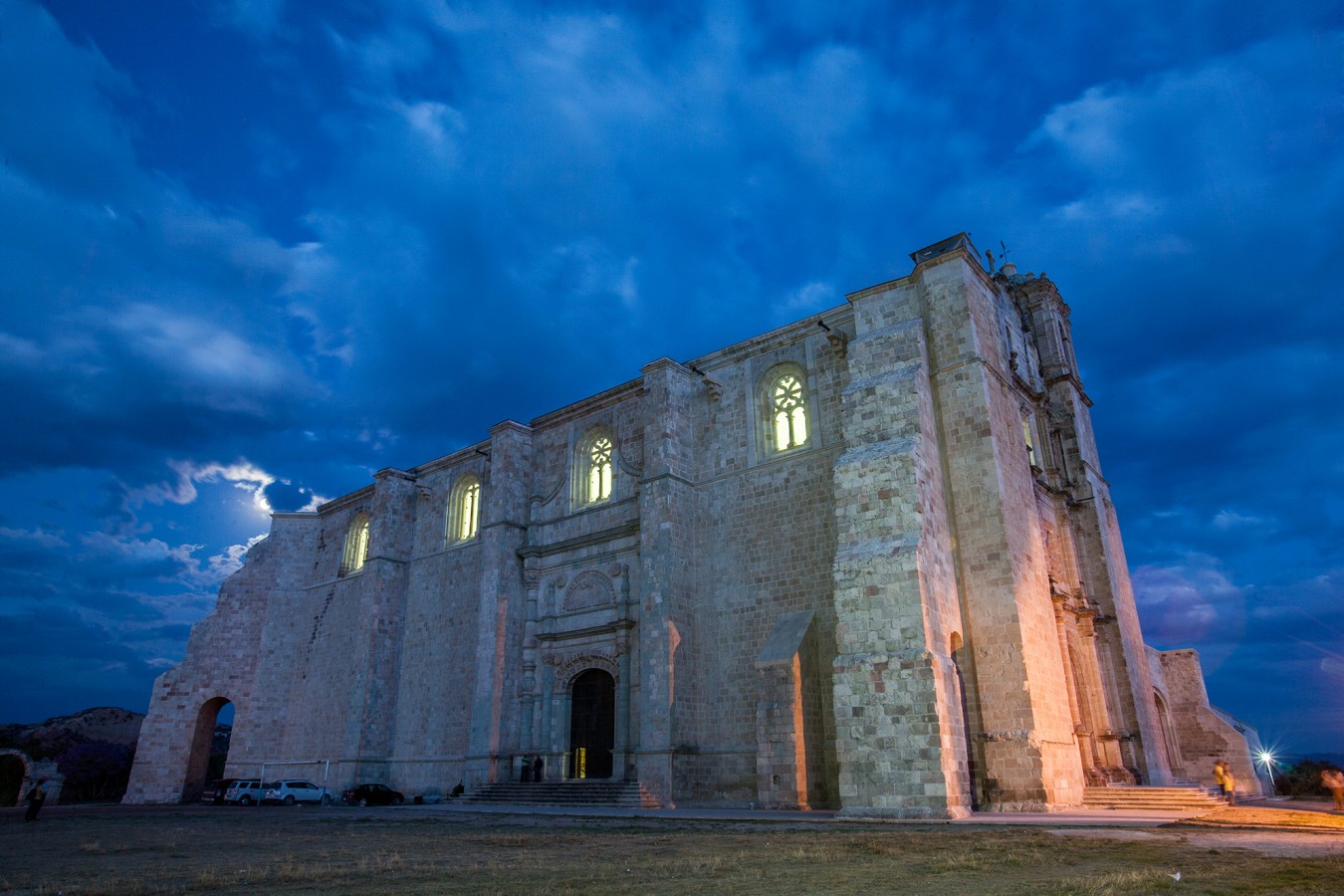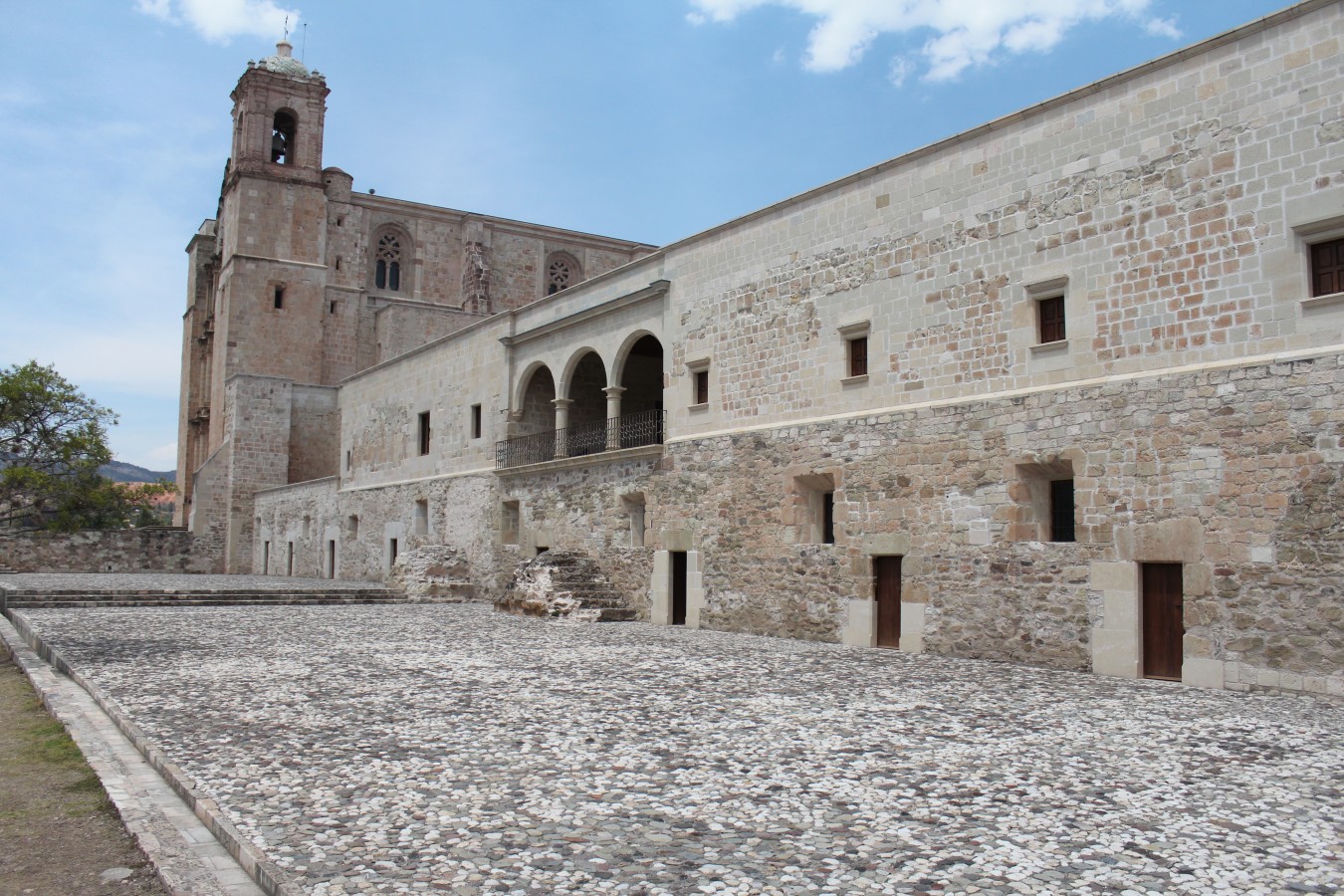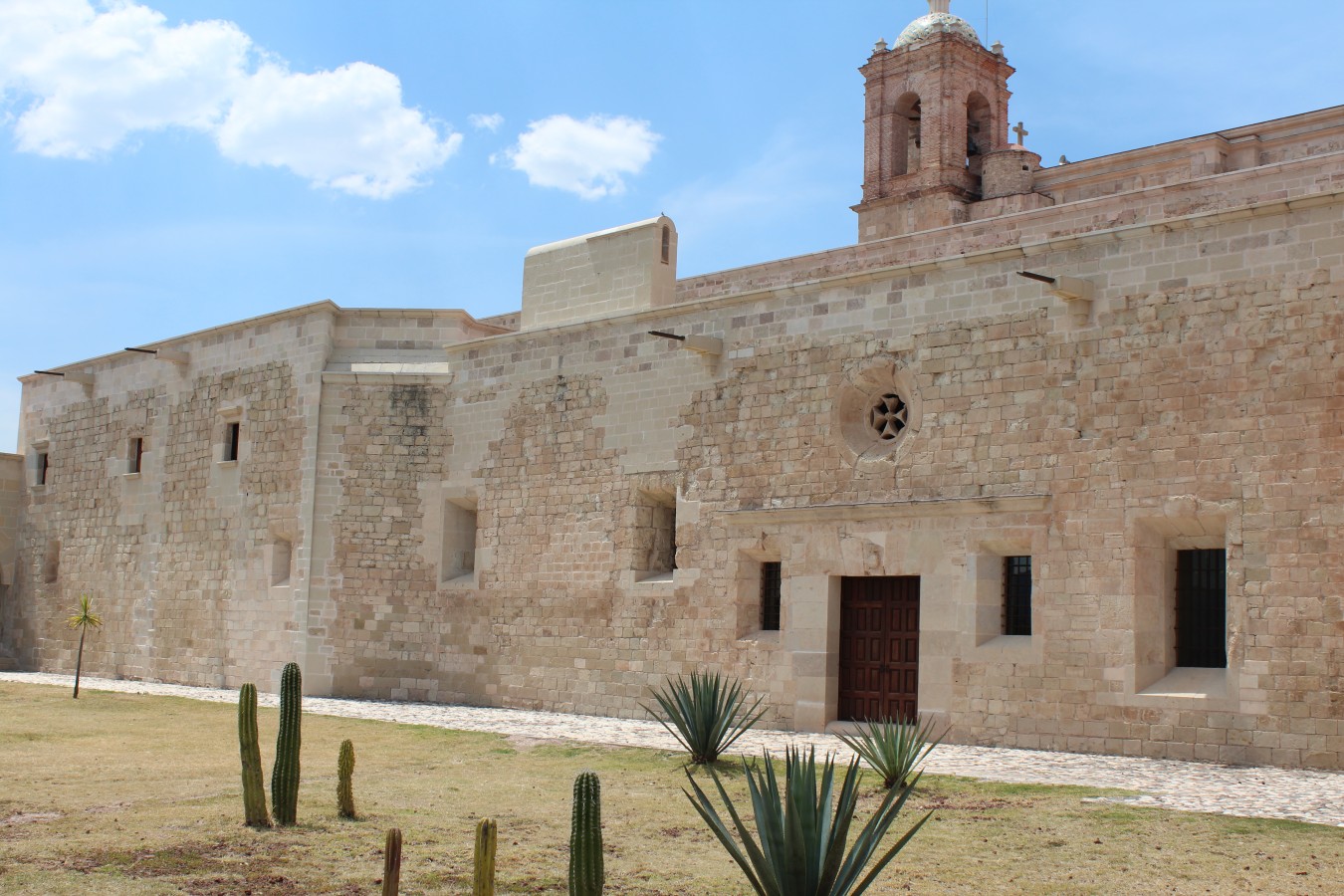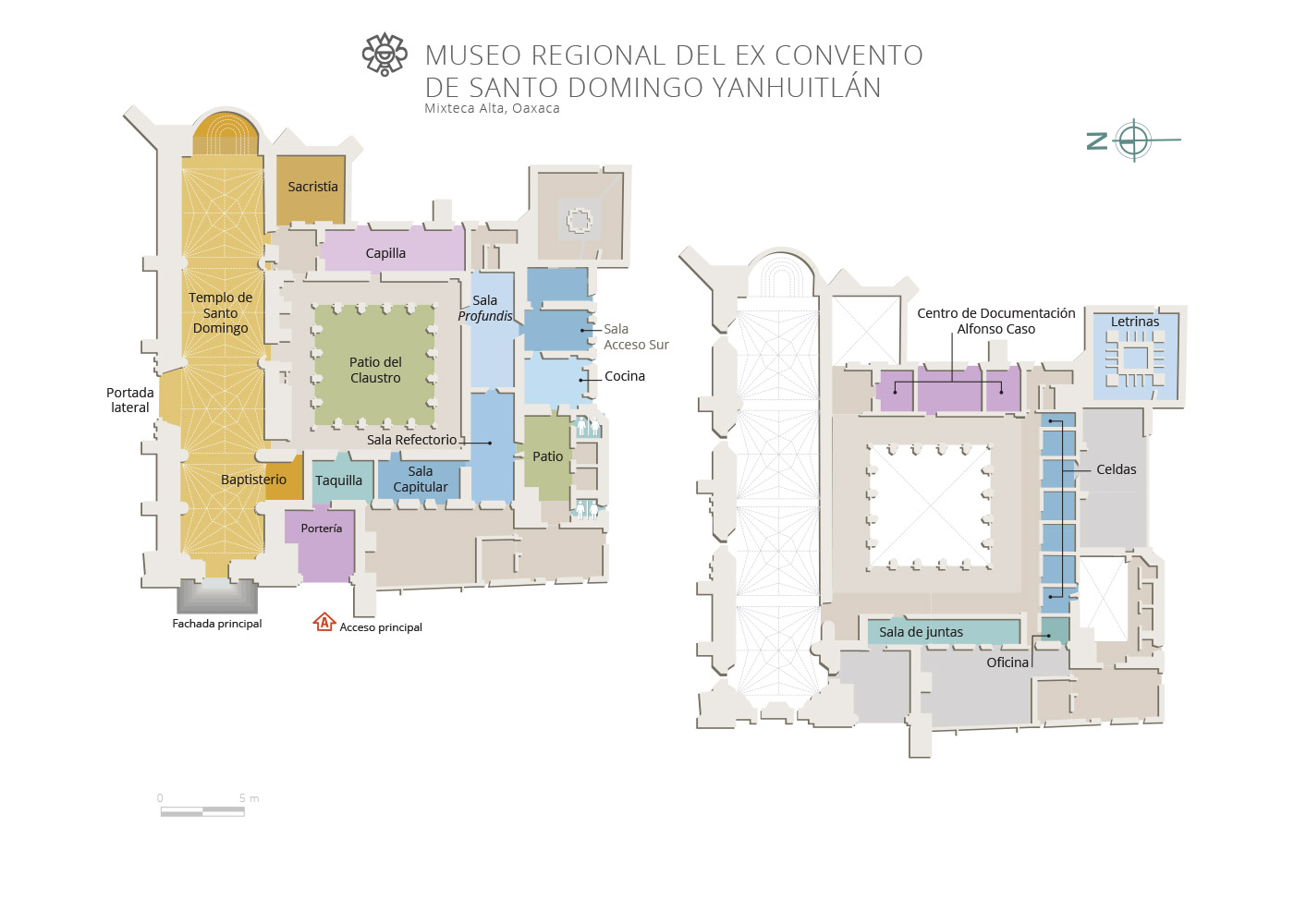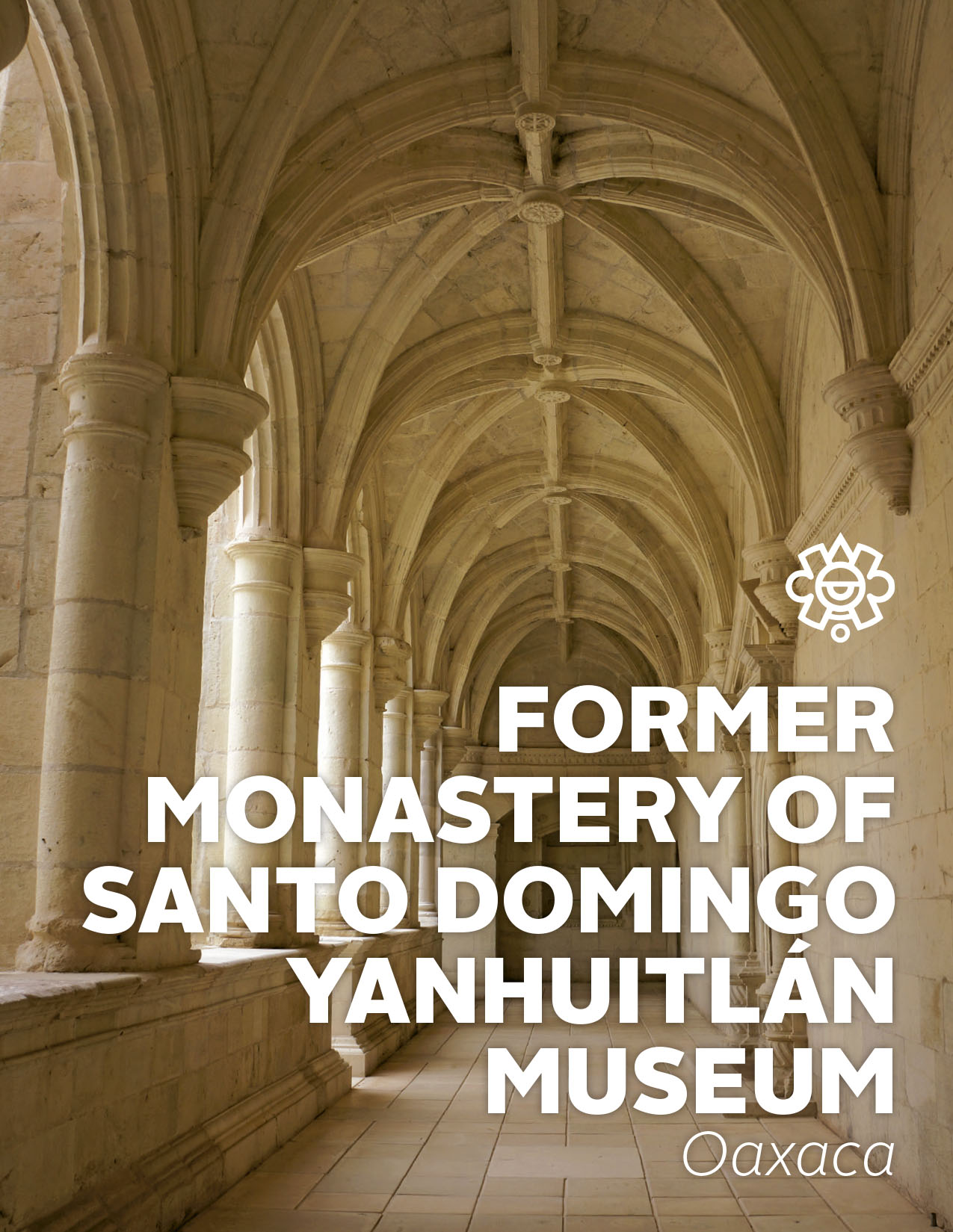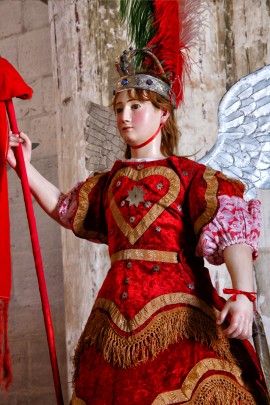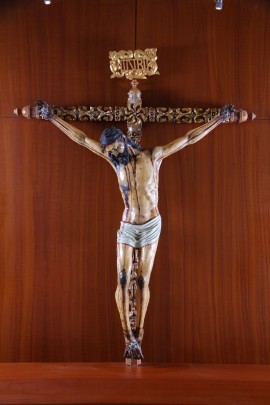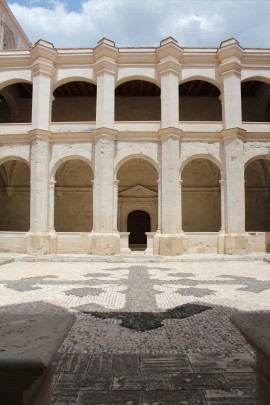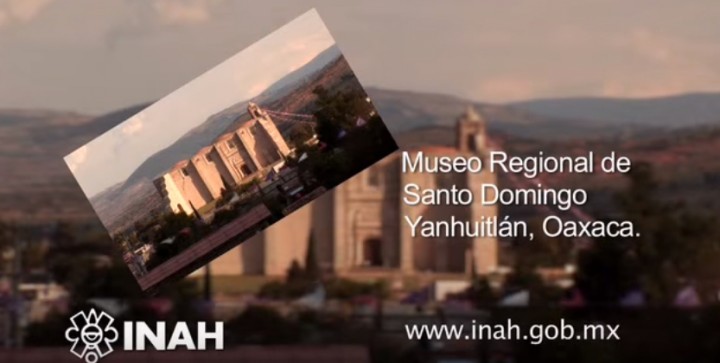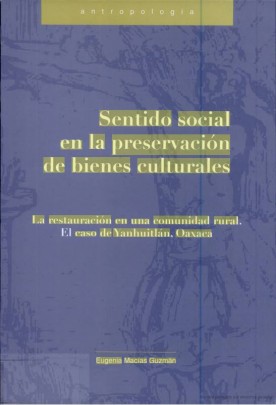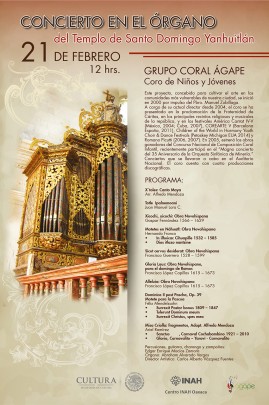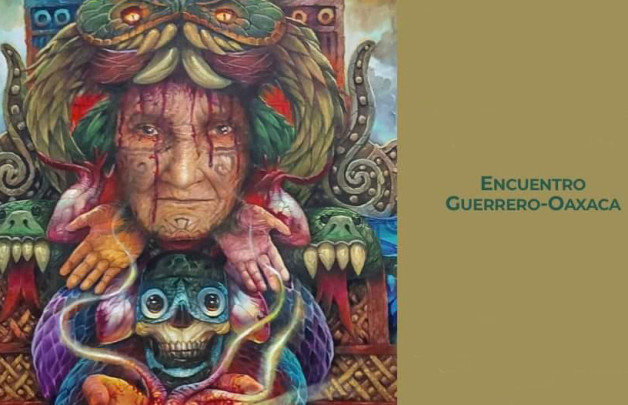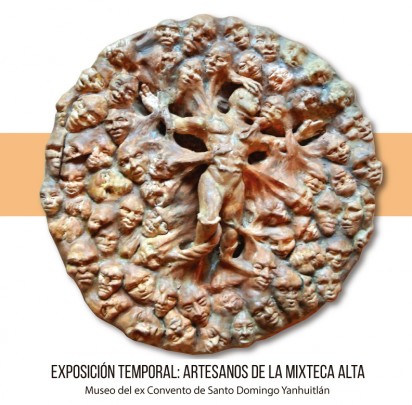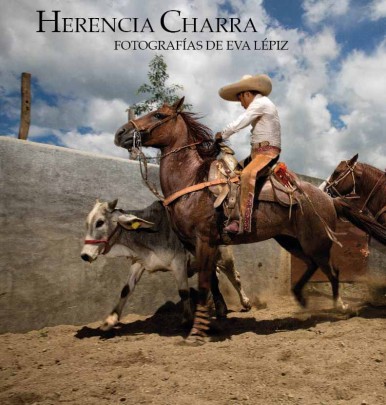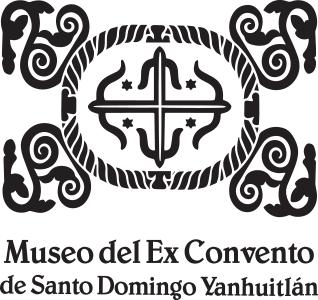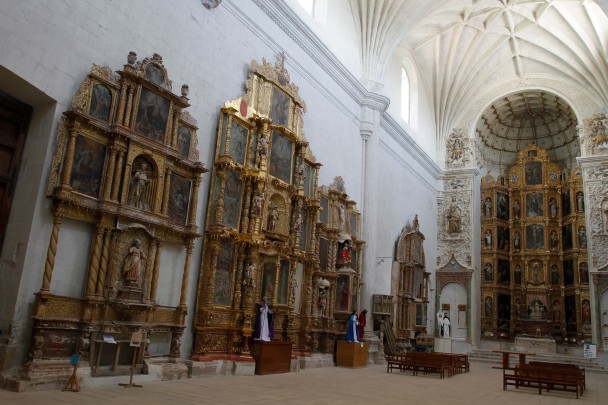Museo del Ex Convento de Yanhuitlán
This was an important trading center both before and after the Conquest. With the construction of the Dominican convent (finished in 1575) it maintained this character as well as being an important center for evangelization. A notable collection of both religious and civic objects from the colonial period.
Local
About the museum
The monastic complex of Santo Domingo in Yanhuitlan has been renowned for its monumental architecture and works of art since the end of the sixteenth century. The monastery was built by the friars, who had to overcome various problems during its construction. In 1535 the Dominican order was granted a territory of nearly 20 square miles to settle and catechize. Nevertheless it was not until 1545 that construction of the complex began, since it had been opposed in the intervening years by Gonzalo de las Casas, the holder of the encomienda as well as by the cacique Domingo de Guzmán. The latter was submitted to trial by the Inquisition in 1544 along with the other indigenous leaders. The cacique Gabriel de Guzmán subsequently took charge, granting the facilities to build the precinct. The building process took 25 years, concluding in 1570.
In the mid-sixteenth century, Yanhuitlan became a silk production center, which was very important to the Spanish crown. The city grew into a dominant economic center because of silk and its location on the trade route to Guatemala. In addition to this, it served as one of the Mixtec region’s places for religious learning and preparation.
Descriptions of Yanhuitlan were more copious in the seventeenth century. We hear about population growth and an increase in the number of dependent towns. Censuses of Yanhuitlan were taken in the New Spain era and records were kept of taxes, political events and economic developments. The evidence shows that this was an “Indian Republic” with Mixtec, Spanish, mestizo and mulatto families, whose economy was based on trading grain and cloth, as well as being the center of government for ten subordinate towns.
There were no mentions of Yanhuitlan by chroniclers or travelers in the nineteenth century until the Porfiriato, when the fledgling nationalist and rationalist movements gave rise to descriptions of the place with topics categorized under geography, climate, commercial organization, religious practices and Dominican missionary work. A new nationalist cultural policy in the post-Revolutionary Mexico of the 1920s gave increased support for the rescue, research and conservation of the heritage. This was the driving force behind several archeological excavations by Alfonso Caso in Oaxaca, as well as the analysis of Mixtec codices (Bodley, Salden, Vindobonensis and Yolotepec), which encouraged researchers such as Wigberto Jiménez Moreno and Salvador Mateos to publish a facsimile edition of the Yanhuitlan Codex.
The Museum of the former Monastery of Santo Domingo in Yanhuitlan (MESDY), is on international highway 190, in the municipality of Santo Domingo Yanhuitlan, Nochixtlán, Oaxaca. Its overall purpose is to provide educational space for courses, workshops and temporary or permanent exhibitions, and academic activities such as colloquia or research conferences on the High Mixtec region of Oaxaca, taking a variety of multidisciplinary perspectives, with an emphasis on the conservation of the palaeontological, archeological and historical heritage.
MESDY is a branch of the Culture Ministry and INAH, through its state office in Oaxaca. When a team of specialists under the direction of the architect Juan Urquiaga Blanco got the restoration of the monastic complex of Santo Domingo Yanhuitlan underway in 2000, it was one of the biggest sixteenth-century historical monument restoration projects in the High Mixtec region of Oaxaca. The work was carried out in 13 phases, each focusing on an area, addressing serious structural deterioration and problems caused by natural phenomena. The above works brought more than 250 jobs to the region. MESDY opened to the public on September 18, 2012.
The archeologist Celina Pérez Mota currently heads three main departments: outreach and education, maintenance and security. These departments promote, protect and safeguard the building, offering valuable services to visitors.
In the mid-sixteenth century, Yanhuitlan became a silk production center, which was very important to the Spanish crown. The city grew into a dominant economic center because of silk and its location on the trade route to Guatemala. In addition to this, it served as one of the Mixtec region’s places for religious learning and preparation.
Descriptions of Yanhuitlan were more copious in the seventeenth century. We hear about population growth and an increase in the number of dependent towns. Censuses of Yanhuitlan were taken in the New Spain era and records were kept of taxes, political events and economic developments. The evidence shows that this was an “Indian Republic” with Mixtec, Spanish, mestizo and mulatto families, whose economy was based on trading grain and cloth, as well as being the center of government for ten subordinate towns.
There were no mentions of Yanhuitlan by chroniclers or travelers in the nineteenth century until the Porfiriato, when the fledgling nationalist and rationalist movements gave rise to descriptions of the place with topics categorized under geography, climate, commercial organization, religious practices and Dominican missionary work. A new nationalist cultural policy in the post-Revolutionary Mexico of the 1920s gave increased support for the rescue, research and conservation of the heritage. This was the driving force behind several archeological excavations by Alfonso Caso in Oaxaca, as well as the analysis of Mixtec codices (Bodley, Salden, Vindobonensis and Yolotepec), which encouraged researchers such as Wigberto Jiménez Moreno and Salvador Mateos to publish a facsimile edition of the Yanhuitlan Codex.
The Museum of the former Monastery of Santo Domingo in Yanhuitlan (MESDY), is on international highway 190, in the municipality of Santo Domingo Yanhuitlan, Nochixtlán, Oaxaca. Its overall purpose is to provide educational space for courses, workshops and temporary or permanent exhibitions, and academic activities such as colloquia or research conferences on the High Mixtec region of Oaxaca, taking a variety of multidisciplinary perspectives, with an emphasis on the conservation of the palaeontological, archeological and historical heritage.
MESDY is a branch of the Culture Ministry and INAH, through its state office in Oaxaca. When a team of specialists under the direction of the architect Juan Urquiaga Blanco got the restoration of the monastic complex of Santo Domingo Yanhuitlan underway in 2000, it was one of the biggest sixteenth-century historical monument restoration projects in the High Mixtec region of Oaxaca. The work was carried out in 13 phases, each focusing on an area, addressing serious structural deterioration and problems caused by natural phenomena. The above works brought more than 250 jobs to the region. MESDY opened to the public on September 18, 2012.
The archeologist Celina Pérez Mota currently heads three main departments: outreach and education, maintenance and security. These departments promote, protect and safeguard the building, offering valuable services to visitors.
September 2012
Map
An expert point of view
Facsimile of the Yanhuitlan Codex
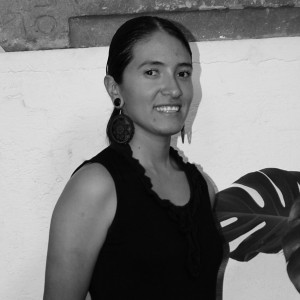
Itandehui Franco Ortiz
Museo Regional del Ex Convento de Santo Domingo, Yanhuitlán
Practical information
Wednesday to Saturday from 10:00 to 16:00 hrs.
$75.00 pesos
Miguel Hidalgo s/n,
Colonia Centro, C.P. 69960,
Santo Domingo Yanhuitlán, Oaxaca, México.
Colonia Centro, C.P. 69960,
Santo Domingo Yanhuitlán, Oaxaca, México.
Yanhuitlán is located 18 km from Nochixtlán, Oaxaca, and 37 km south of Tamazulapan, Oaxaca. To get there from the capital of Oaxaca, take International Highway 190 towards Huajuapan de León.
-
+52 (951) 518 2452
-
This email address is being protected from spambots. You need JavaScript enabled to view it.
-
FACEBOOK
Directory
Encargada
Itandehui Franco Ortiz
This email address is being protected from spambots. You need JavaScript enabled to view it.
+52 (951) 518 2452
Jefa de Custodios
Rosa Hernández Cruz
No tiene correo electrónico
+52 (951) 518 2452
Difusión y Servicios Educativos
María Lourdes Ventura Castro
This email address is being protected from spambots. You need JavaScript enabled to view it.
+52 (951) 518 2452
Acervo Alfonso Caso
Olga Arroyo Utrera
This email address is being protected from spambots. You need JavaScript enabled to view it.
+52 (951) 518 2452

